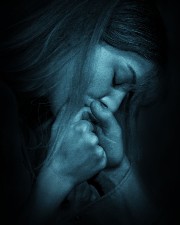Breakfast with a Tiffany Lamp
 Maybe it isn't stealing since the will leaves everything to me... Or is it?
Maybe it isn't stealing since the will leaves everything to me... Or is it?In Philadelphia for Pam's funeral I wonder if people think it's my fault. I am nice to her father and her evil step-mother, betraying Pam by cozying up to the two people she hates, because I want them to reassure me that they don't blame me. I am somebody else with them. The urge to play and pretend makes a comeback. It is all acting, the flight, the funeral, all of it. My old heroin addict acting teacher from the American Academy of Dramatic Arts would be proud.
The whole performance is a break-through in emotional realism, even as I try to firmly distance myself from the reality of what I feel after her death. After she kills herself. After I find her.
Pam's father assures me he will honor Pam’s suicide note and will, though her is also quick to point out that it probably isn't legally enforceable. He wants me to have whatever is left after probate, but tells me not to expect too much. Flying her body out from Los Angeles has been very expensive, and it is only fair, in his words, to pay for it out of her own money. Then he starts asking me what I know about various pieces of furniture and art Pam got after her mother's death, if he might have them back, since they were stolen from him by his wife.
I say I think Pam has sold a lot of stuff, that I'm not sure. I am scheduled to leave on a flight the morning after the funeral. I stay only twenty minutes at the post-funeral buffet, pleading exhaustion. They tell me Pam was lucky to have a friend like me, and that they hope I will stay in touch. I am such a good person.
From their place I take a cab to the train station and immediately go to Pam's apartment in New York. I take everything; the art, the small pieces of furniture, the jewelry, all of it.
Her father calls me a week later to say he is surprised at how little is left in Pam's apartment of the stuff his wife took from him. Did Pam sell everything? I say I guess she must have. I cling to what I have taken. I want it all. Including an original Tiffany table lamp I will sell for a lot of money years later.
I am not honest. I don't tell her father that these things are mine by rights. That they were Pam's mother's, left to her, then left to me. For him to get any of it back is unthinkable; a betrayal of what killed Pam, even of what killed her mother.
When I get back to Los Angeles my mother calls from Texas and asks if I want her to come out and stay with me for a while. Stupidly I tell her no, rejecting the idea, not wanting to be weak or needy. No one can know how dark it is in my head, least of all my idealized mother, who can only stay idealized at a distance.
Pam and I come from the same place and have the same weaknesses, keeping everything good at arm's length while we luxuriate in pain. She is now in the past tense. I am overwhelmed by her death, by the absence of her, but one true thing emerges: The astrologer in New York, the one who says I must have love or die , is right about me. Accept it or die. Just like Pam, like Pam, Pam --
Six weeks later probate closes. Her father sends me a check for $2,000.
Comments? Questions? Email me.


<< Home